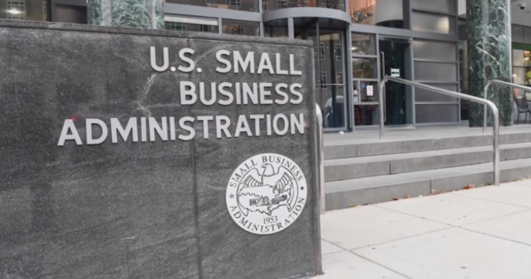6 ways to fraud-proof your retirement savings
Fraudsters target people of all ages, but older adults with retirement savings are particularly lucrative targets. And the consequences of fraud and exploitation can have a devastating impact on older adults who depend on their retirement savings after they leave the workforce.
"Older investors should take steps to protect their hard-earned retirement savings from all types of loss -- whether true investment fraud or unsuitable, but legal investment opportunities," said Marti DeLiema, a post-doctoral fellow at the Stanford Center on Longevity. DeLiema is one of the nation's leading experts on financial fraud and exploitation of the elderly.
Older investors are often solicited by crooks posing as financial advisers or by advisers who aren't breaking the law but are pitching investments that aren't appropriate for retirees. Why do they target older Americans? For the same supposed reason that famed bank robber Willie Sutton stole from banks -- "That's where the money is." Fraudsters know older Americans often have more wealth than younger people.
DeLiema recommends six steps to protect yourself and your loved ones from either type of exploitation.
Step 1: Retiring? Consider leaving your money where it is
Most employers allow retired employees to keep their money invested in an employer-sponsored 401(k) or 403(b) plan. DeLiema recommends that you consider leaving your savings with your employer because large employers generally operate these funds on a cost basis rather than a for-profit basis, which helps keep fees low and boosts investment returns.
They also try to find the best-performing funds for their workers. As plan sponsors, employers must operate under fiduciary standards, meaning they're legally required to act in the best interest of their plan participants and their beneficiaries.
While most advisers and brokers act with integrity and have their clients' best interests in mind, some high-priced, predatory brokers encourage retirees to roll over their 401(k) or 403(b) funds into a higher-cost fund that they manage. They may promise to beat investment returns offered by the employer-sponsored plan and even use emotional appeals to persuade retirees to invest their savings immediately instead of taking time to do research on other options.
Another situation that's ripe for exploitation: When a retiree is offered a lump-sum payment from a traditional defined-benefit pension plan instead of the lifetime monthly paycheck. Retirees shouldn't trust overblown claims from advisers who say they can outperform effectively managed employer-sponsored plans. Such statements are typically too good to be true.
Electing the monthly paycheck option instead of the lump sum can also protect financial resources by reducing liquidity (see Step 3 below).
Step 2: Activate security features for your accounts
DeLiema recommends activating the security features on your financial accounts. Elect to receive fraud alerts and use two-step authentication to access the accounts online. Some firms also use voice authentication and other biometric security features to protect their clients' money from hackers and identity thieves.
Turning on notifications that send a text message any time withdrawals exceed a certain amount can keep accountholders informed and ready to run interference if fraud occurs. Individuals looking to invest in a new plan or open a new account should look for firms that offer these added security features.
They should also opt out of receiving paper statements in the mail because identity thieves can intercept these materials.
Step 3: Reduce liquidity and automate the payout process
Financial exploiters -- including greedy friends, family members and hired caregivers -- look for easy opportunities to take money from vulnerable elders. They'll go after the money held in checking and savings accounts first because it's easier to access these liquid funds.
DeLiema suggests that reducing asset liquidity is one way to keep your money safely invested.
This is another reason it's a good idea to elect a monthly check from your employer's pension plan instead of a lump sum. In addition, a low-cost, competitively bid payout annuity acts like a personal pension because disbursements are also administered monthly. Not only do payout annuities help people spend carefully throughout retirement, they also prevent financial opportunists from accessing retirees' savings.
They're also helpful if a retiree reaches an age when she's less able to monitor and manage her investments independently.
Most likely, retirees wouldn't want to invest most of their savings in an annuity. Research supports developing a diversified portfolio of retirement income, with a portion of savings devoted to payout annuities and leaving remaining savings in the employer's retirement plan or other efficient investment accounts. In addition, it's important to keep some cash available in a savings or checking account to use for unexpected costs like negative health events or home repairs.
Disbursements from annuities and other retirement accounts, including employer-sponsored retirement plans, should be done via electronic transfer into a bank account rather than deposited as a check. This prevents checks from being stolen out of the mail.
Step 4: Diversify your accounts
When all retirement savings are held in a single account belonging to a single financial institution, a successful hacking attempt or a bad financial decision can wipe out a person's retirement security. That's why DeLiema recommends that retirees diversify where their accounts are held, just as they would diversity their investment portfolios.
That way, even if one account or institution is compromised, the money held in other accounts is safe. This is especially important for retirees with significant assets. Accounts with large balances might be a major draw to fraudsters.
Step 5: Demand fiduciary standards from your financial adviser
Large employers that sponsor retirement plans have a legal duty to act prudently on behalf of their plan participants, which is another reason to leave your accounts with your employer.
The U.S. Department of Labor recently instituted a rule requiring that advisers who provide investment advice to people with retirement accounts or IRAs also must comply with fiduciary standards. However, the Trump administration has ordered a review of this rule, which is also under attack by some Republicans in Congress.
Even if these rules are repealed or revised, many advisers will act as fiduciaries on your behalf, so you'll want to seek them out. In addition, ask your financial adviser to act as a fiduciary with all your accounts, regardless of whether they're for retirement.
Step 6: Sign a "springing" power of attorney
A power of attorney is a legal document that gives written authorization for one person to act on another's behalf in legal, financial and health care matters. A "springing" power of attorney is available in some states and takes effect when a specified event occurs, such as when the individual, or "principal," loses the capacity to make independent financial decisions.
The principal specifies exactly how and under what circumstances the power of attorney springs into effect. Principals also have control over what powers they give their agents, so adding language to make it clear that the agents may not engage in activities that would alter the principal's wealth transfer plan or affect the principal's beneficiaries ensures that agents don't commit fraud.
Social isolation is a risk factor for exploitation because isolated adults have less oversight from others who could potentially stop financial predators from taking control. So instead of giving one person power of attorney, older adults should consider naming joint agents. That way, both agents must agree on financial actions, making exploitation more difficult.
Copies of signed powers of attorney, in addition to information about relatives and friends who are not to be trusted with financial decisions, should be provided to financial advisers.
DeLiema recommends that retirees engage trusted family members in their important financial decisions, such as by getting help reading contracts that the elder is asked to sign. Not only will this help family members understand the elder's financial goals, it will also prevent others from secretly exerting undue influence.
Here's the bottom line from DeLiema: "If you're an older worker or retiree, taking steps to protect against financial fraud and exploitation should be an important part of your retirement plan. Consider that you might reach an age when you're no longer interested or able to manage your financial affairs."
Excerpted with permission from Safeguarding Retirement Assets from Financial Fraud and Exploitation, a toolkit brief from the Stanford Center on Longevity.





